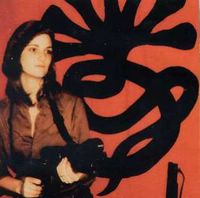Truth or Consequences
In The Los Angeles Times, Tim Rutten expertly dissects the Judy Miller debacle:
"The [New York] Times is a great news organization with a newfound capacity for self-criticism and a demonstrated capacity to renew itself. Miller, the reporter, represents something far more persistent and pernicious in American journalism. She's virtually an exemplar of an all-too-common variety of Washington reporter: ambitious, self-interested, unscrupulous and intoxicated by proximity to power.
"Unfortunately, she has also become the poster child in the push for a national reporter's shield law, and this week she went before the Senate Judiciary Committee to testify for the Free Flow of Information Act. There, she didn't even blush when she told the lawmakers: 'Confidential sources are the life's blood of journalism. Without them ... people like me would be out of business.'
"Probably so, but there's still a case to be made for this legislation."
In particular, Rutten zeroes in on Miller's recollection (published Oct. 16 in The Times) of a conversation she had with Scooter Libby, the veep's embattled chief of staff, in which Libby initially noted that Joe Wilson's wife, Valerie Plame, worked for the CIA and had sent her husband to investigate allegations that Iraq was seeking WMDs. Miller said -- and apparently has since testified to special prosecutor Patrick Fitzgerald -- that Libby wanted to be identified as a "former Capitol Hill staffer" instead of as anyone connected to the White House.
Rutten goes on:
"As the Los Angeles Times' Peter Wallsten and Tom Hamburger reported Friday, Libby was obsessed with Wilson and determined to discredit -- and defame -- him. Why take the chance of leaving your own fingerprints at the scene of the crime, when the Washington press corps continues to be studded with useful idiots like Miller, who would whack their own grandmothers for a byline above the fold."
Miller's journalistic transgressions aren't the only lamentable actions here. On the other end of the spectrum is the incredible latitude she received from her editors. The New York Times' public editor and current instrument of self-flagellation, Byron Calame, also holds the feet of Miller's bosses to the proverbial fire:
"The apparent deference to Ms. Miller by Arthur Sulzberger Jr., the publisher, and top editors of The Times, going back several years, needs to be addressed more openly, especially in view of the ethics issues that have come to light ...
[...]
"Mr. Sulzberger, inclined by instinct and Times tradition to protect any reporter's confidential sources, wasn't doing anything special in backing Ms. Miller on this journalistic principle. But in an interview for the retrospective last Sunday, Ms. Miller acknowledged Mr. Sulzberger's special support in this case. 'He galvanized the editors, the senior editorial staff. ... He metaphorically and literally put his arm around me,' she said."
Reporters, by and large, do not appreciate their own power. That isn't to say they are bad reporters, necessarily; I still cling on to my romantic notions, fueled by legends like Edward R. Murrow and Woodward & Bernstein, that the Fourth Estate is a vital part of democracy and essential to ensure an informed citizenry.
All too often, however, those seem to be incidental outcomes. For all the chest-thumping that so many reporters (including this one, admittedly) give about holding government accountable and giving a voice to the voiceless, etc. -- the same bluster Miller dredged up before Congress while promoting a shield law -- experience continually shows that most reporters don't really get it. And neither, really, do most editors.
They want a substantive scoop, sure; and they might even enjoy being a burr under the saddle of the high and mighty. But too many reporters do not fully appreciate the awesome power they have at their disposal. They are careless with it, children with a loaded firearm in the sandbox; or they fail to recognize that the choices they make -- what to cover and what not to cover -- impact real people and have real consequences.
Judith Miller obviously practiced some shoddy journalism. She did not weigh the more insidious motives of her sources, and she failed to come clean with her editors. It is no remarkable accident that she was among the most celebrated reporters for arguably the most celebrated newspaper in the world. From Bakersfield to Bangor, Maine, scores of well-intentioned Judith Millers are still tapdancing away, albeit with smaller shoes.























3 Comments:
Here...here....!!! I could not have said it better myself. Your insight and persepective is valued and appreciated.
Well said, Chase. The press must recognize its own responsibility to us, the people. The press spent months championing Judith Miller's rights as a journalist, and forgot that her "ethics" protected a propaganda spin machine that has incidentally killed and maimed an awful lot of people.
I think this entire episode reflects a deeply flawed newspaper. I've been beating that drum for a long time, and this is only the latest in a series of incidents that demonstrates that reporting in the NYT is less than trustworthy. The NYT is biased, arrogant and improperly managed.
Post a Comment
<< Home